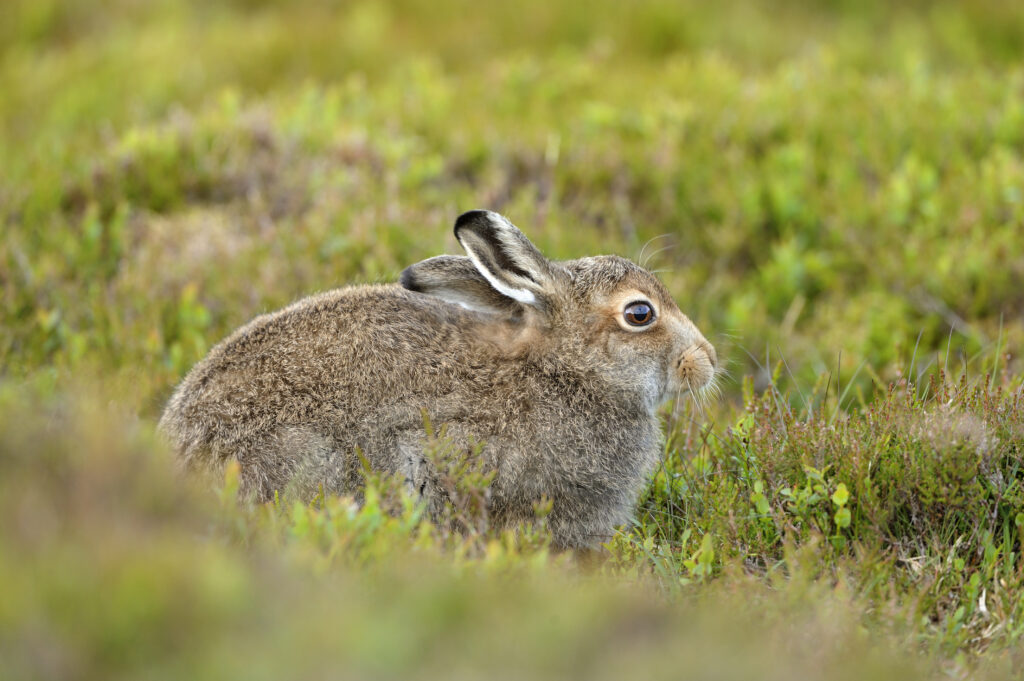A SURVEY of Scotland’s mountain hares involving volunteer citizen scientists has been hailed as a success in a new report published today.
Thanks to a smartphone app called Mammal Mapper, a host of outdoor enthusiasts last year took part in an on-the-ground national survey, recording sightings to shed more light on the distribution and numbers of the animals.
The Volunteer Mountain Hare Survey project aimed to gather more accurate information to better inform conservation efforts.
A total of 66 volunteers surveyed 1,465 km using the app.

Mountain hares are Scotland’s only native hare and are classed as Near Threatened in Scotland on the UK Red List of Mammal Species, and were given full protection in Scotland in March 2021.
The species was recorded from some new areas, such as near Loch Ewe in the North West Highlands, in addition to many sightings from its previously known strongholds in Scotland.
The report highlights areas where the survey approach and technology could be improved, which will guide refinements for this year’s survey.
The project is a partnership of NatureScot, the British Trust for Ornithology (BTO), the Mammal Society, the Game & Wildlife Conservation Trust and the James Hutton Institute.
It builds on previous work to develop suitable counting methods in the mountain hare’s core range and seeks to complement these other counts to allow improved monitoring of mountain hares across their range in Scotland.
The hope is that the survey will in due course transition to an on-going annual monitoring scheme.
Frazer Coomber, Science Officer for the Mammal Society said: “When compared with previous years, the Volunteer Mountain Hare Survey, has significantly increased the Mammal Mapper App’s survey coverage in Scotland.
“Since the inception of this citizen science survey we have seen a substantial increase in the number of mountain hare sightings reported through the app and these records are continuing to be submitted – a big thank you to all those who submit their sightings.”
Rob Raynor, a mammal specialist at NatureScot, said: “The results from this innovative citizen science survey are really promising, with lots of volunteers getting involved to help achieve better coverage than previous surveys.
“Improving the information we have on mountain hare populations is crucial so that we can protect and conserve this much-loved species, so we’re hugely grateful to all those who took part.
“We hope that many more volunteers will sign up to get involved this year to help this project go from strength to strength.”
Mark Wilson, senior research ecologist at British Trust for Ornithology, said: “We were delighted at the levels of involvement from existing BTO volunteers, many of whom already give generously of their time to other wildlife surveys.
“As well as recording mountain hares, these volunteers surveyed a range of other mammal and bird species, often in remote upland areas where there has been little previous wildlife recording.
“This highlights the potential of the Volunteer Mountain Hare Survey to contribute useful information on a range of data-deficient upland species.”
